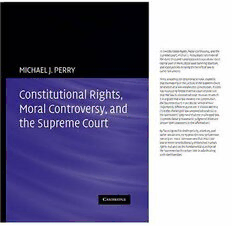
Constitutional rights, moral controversy, and the Supreme Court PDF
266 Pages·2009·0.713 MB·English
Most books are stored in the elastic cloud where traffic is expensive. For this reason, we have a limit on daily download.
Preview Constitutional rights, moral controversy, and the Supreme Court
Description:
In this important new book, Michael J. Perry examines three of the most disputed constitutional issues of our time: capital punishment, state laws banning abortion, and state policies denying the benefit of law to same-sex unions. The author, a leading constitutional scholar, explains that if a majority of the justices of the Supreme Court believes that a law violates the Constitution, it does not necessarily follow that the Court should rule that the law is unconstitutional. In cases in which it is argued that a law violates the Constitution, the Supreme Court must decide which of two importantly different questions it should address: (1) Is the challenged law unconstitutional? (2) Is the lawmakers' judgment that the challenged law is constitutional a reasonable judgment? (One can answer both questions in the affirmative.) By focusing on the death penalty, abortion, and same-sex unions, Perry provides illuminating new perspectives not only on moral controversies that implicate one or more constitutionally entrenched human rights, but also on the fundamental question of the Supreme Court's proper role in adjudicating such controversies.
See more
The list of books you might like
Most books are stored in the elastic cloud where traffic is expensive. For this reason, we have a limit on daily download.
